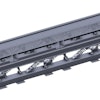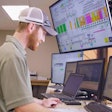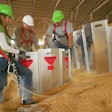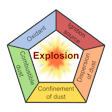Among the many thought-provoking educational sessions at the International Feed Expo,Leland McKinney's presentation "Energy Conservation Tips for Your Feed Mill" stood out above the rest. While McKinney, an associate professor of grain science and industry at Kansas State, offered up very practical advice for maximizing energy consumption and increasing savings within a feed mill, the real message I walked away with had little to do with pipe insulation or the repair of compressed air leaks.
In McKinney's opinion, the root of inefficient operations does not lie with shoddy equipment or unskilled labor, rather these losses can be traced directly back to lackluster management. In efficient mills, he notes, the manager is always on top of things -- able to respond quickly and effectively as situations arise -- and one whose total dedication to every aspect of the operation was never in questions.
"It's all about attitude," says Leland when referring to the difference between a good manager and a bad manager. He suggested that the adoption of a continuous improvement mindset made all the difference in how efficiently a facility is operated.
For example, should a feed mill manager spot a drop of oil on the ground, his first instinct should be to seek out the source of the problem and resolve it. This thinking is in line with any preventative maintenance program, but McKinney's stance pushed it a step further.
The residual effect of poor management was the correlated poor performance of subordinates. Ultimately, the manager should lead by example, and if he has failed to motivate his employees from taking initiative, it is symptomatic of his own leadership shortcomings.
The best ways to control cost is by acknowledging that maintenance is a continuous process. Consequently, solid, two-waycommunication between management and employees will encourage a proactive stance toward preventing problem from escalating and will motive staff to push themselves to exceed expectations.
In closing, McKinney offered up two key points regarding maintenance: Be observant and don't procrastinate. If you lead by example wide-spread efficiency benefits should follow suit.




















